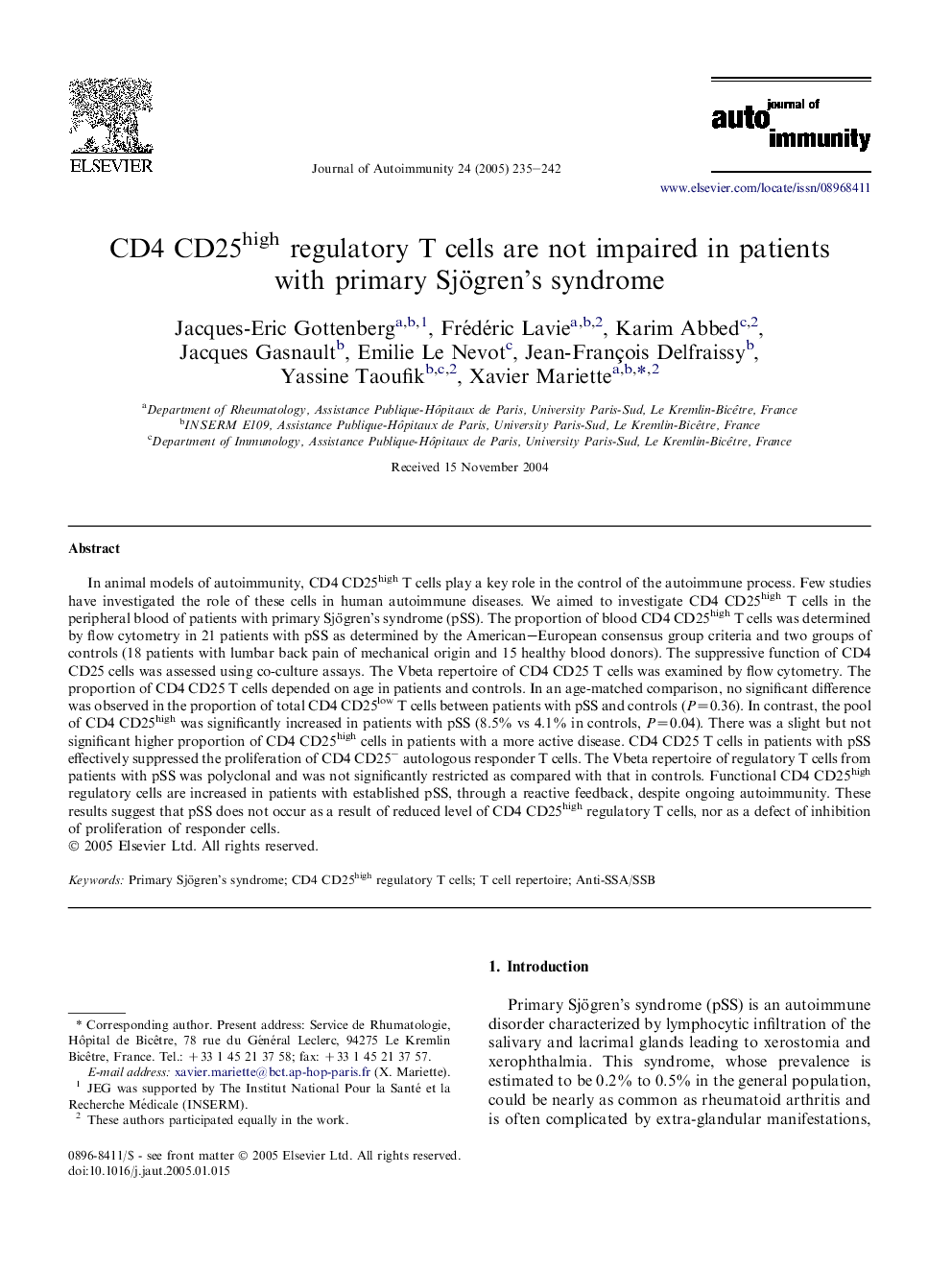| Article ID | Journal | Published Year | Pages | File Type |
|---|---|---|---|---|
| 9267931 | Journal of Autoimmunity | 2005 | 8 Pages |
Abstract
In animal models of autoimmunity, CD4 CD25high T cells play a key role in the control of the autoimmune process. Few studies have investigated the role of these cells in human autoimmune diseases. We aimed to investigate CD4 CD25high T cells in the peripheral blood of patients with primary Sjögren's syndrome (pSS). The proportion of blood CD4 CD25high T cells was determined by flow cytometry in 21 patients with pSS as determined by the American-European consensus group criteria and two groups of controls (18 patients with lumbar back pain of mechanical origin and 15 healthy blood donors). The suppressive function of CD4 CD25 cells was assessed using co-culture assays. The Vbeta repertoire of CD4 CD25 T cells was examined by flow cytometry. The proportion of CD4 CD25 T cells depended on age in patients and controls. In an age-matched comparison, no significant difference was observed in the proportion of total CD4 CD25low T cells between patients with pSS and controls (P=0.36). In contrast, the pool of CD4 CD25high was significantly increased in patients with pSS (8.5% vs 4.1% in controls, P=0.04). There was a slight but not significant higher proportion of CD4 CD25high cells in patients with a more active disease. CD4 CD25 T cells in patients with pSS effectively suppressed the proliferation of CD4 CD25â autologous responder T cells. The Vbeta repertoire of regulatory T cells from patients with pSS was polyclonal and was not significantly restricted as compared with that in controls. Functional CD4 CD25high regulatory cells are increased in patients with established pSS, through a reactive feedback, despite ongoing autoimmunity. These results suggest that pSS does not occur as a result of reduced level of CD4 CD25high regulatory T cells, nor as a defect of inhibition of proliferation of responder cells.
Related Topics
Life Sciences
Immunology and Microbiology
Immunology
Authors
Jacques-Eric Gottenberg, Frédéric Lavie, Karim Abbed, Jacques Gasnault, Emilie Le Nevot, Jean-François Delfraissy, Yassine Taoufik, Xavier Mariette,
